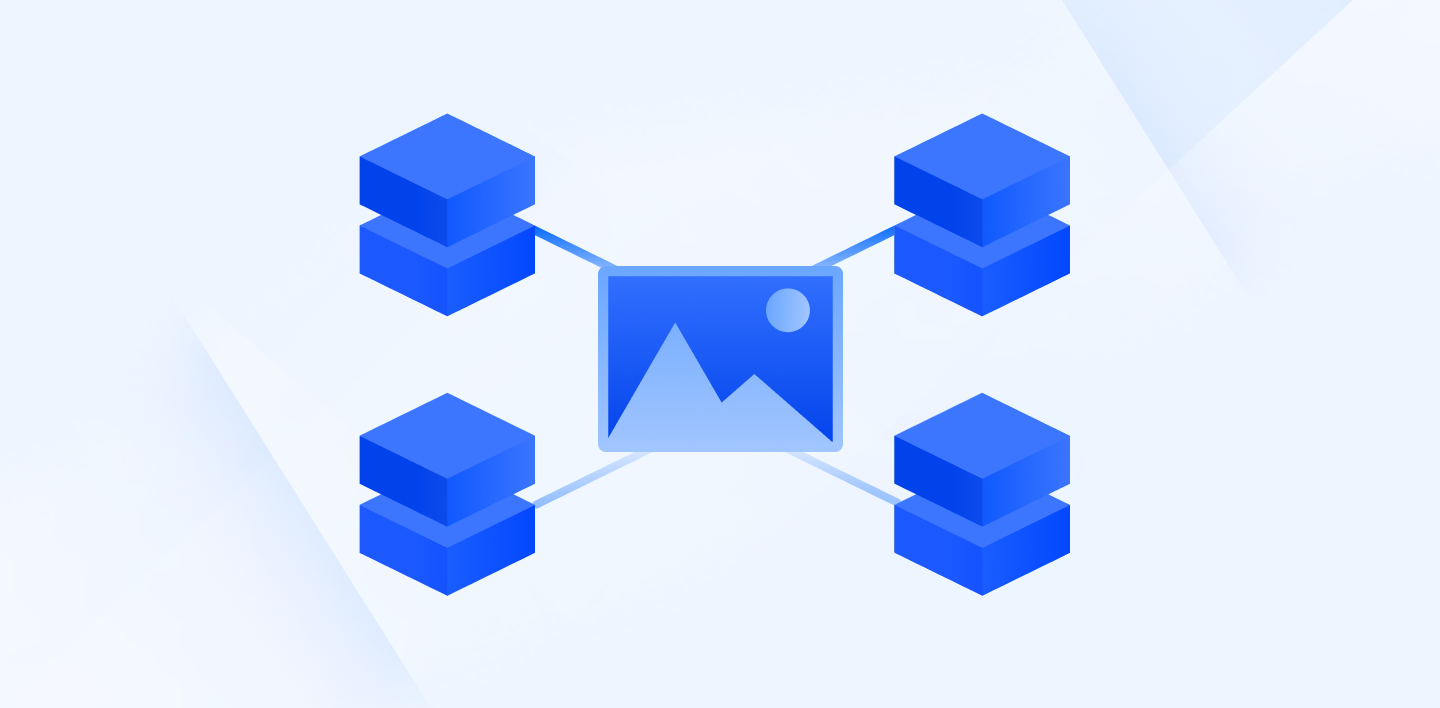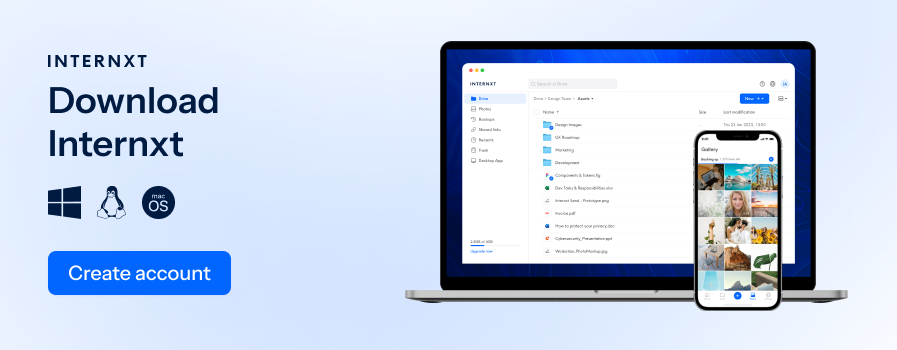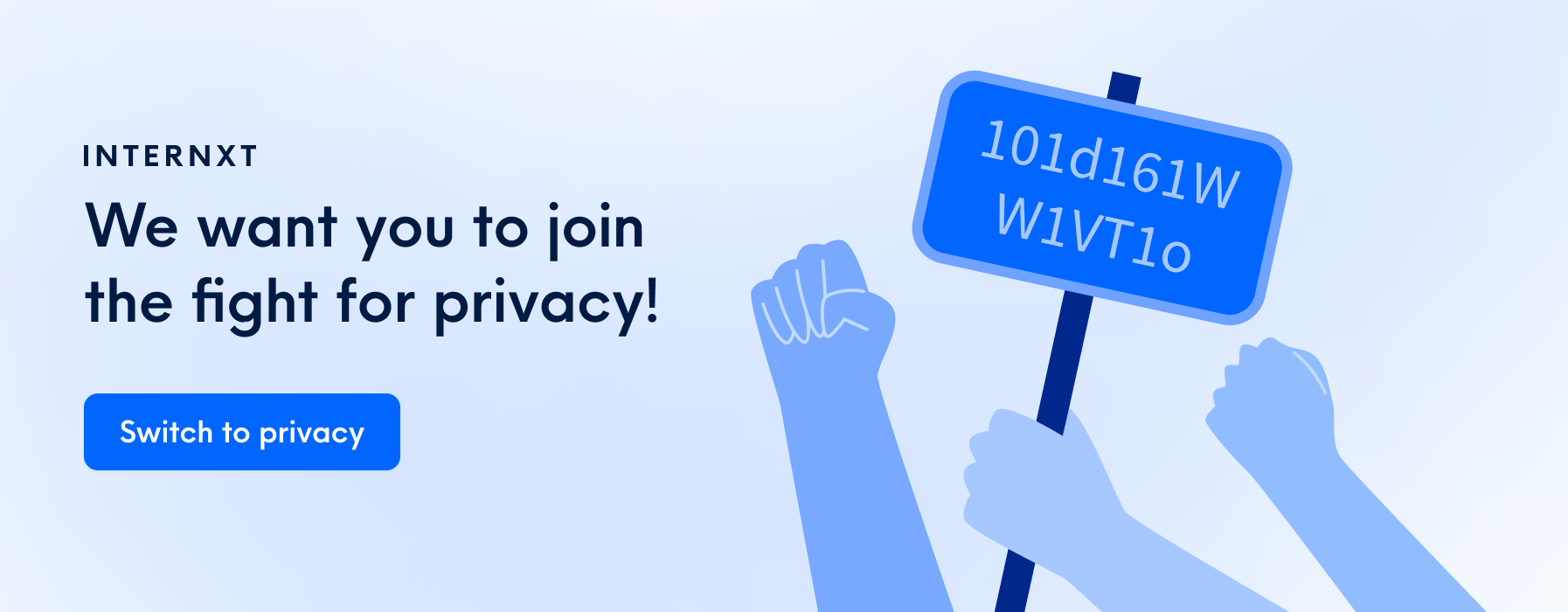How Blockchain Achieves Safer Cloud Storage for Photos

There is no shortage of cloud storage options on the market. But security scares and nosy tech companies limit the field to just a few very good choices. Blockchain cloud storage and Web3 are the future and will change the online storage world forever. Finally, you can keep your photos (actually) private.
What is Blockchain?
Blockchain is an unchangeable digital ledger shared across many devices and networks that facilitate the recording of transactions while also tracking assets.
What this means is that information stored in the blockchain is fragmented and added to the running ledger of activity. Every action is recorded transparently, yet only the owner of the data has access to it.
Files are fragmented, encrypted, and stored across the blockchain network via peer-to-peer service.
With blockchain, there is no one centralized storage server, everything is shared among many smaller service providers. This makes a blockchain extremely resilient. If someone were to edit or hack a one location, it would be easily noticed and cordoned off from other locations.
Just because more locations store your data doesn’t mean your information can be more easily accessed. All data on a blockchain is encrypted, scrambled beyond recognition, and can only be accessed by the owner with the designated encryption key.
How Photos Are Stored Using Blockchain
How does blockchain cloud storage work? Storing photos and other digital files on a blockchain is one of the best ways to ensure your privacy. When a photo is uploaded to a blockchain-based cloud storage service, the information is encrypted and scattered across the blockchain's peer-to-peer network.
The service you use doesn’t have any access to your information, they simply add the data to the network. The end-user, or person uploading the photo, docs, or other files, is the only one granted an encryption key which is the only means for accessing the data.
Blockchain storage can survive more adversity than other forms of storage, simply because one outage at any point in the network won’t compromise the rest of the blockchain.
The Limitations of Traditional Cloud Storage
Traditional cloud storage works just fine, but it comes loaded with many issues that blockchain doesn’t struggle with. A majority of the difficulties center around single ownership. A company that offers traditional storage holds your data in totality.

Lack of trust
When storing your digital life - photos, documents, forms, etc. - it's important to know they’re safe in the hands you put them in.
Unfortunately, many cloud storage companies make their money from selling your personal data. This is especially true for products or services that are free to use.
It’s difficult to be 100% sure a company isn’t accessing or scanning your information. Blockchain virtually eliminates the possibility of spying and data collection.
Centralized storage (one point of access)
Most companies store data on large servers they maintain located in one or just a few locations. Obviously, it's easier for one company to maintain only a couple server farms compared to small ones spread out all over.
This in itself is no big problem, but by consolidating all the data the company accumulates in one location, it makes the storage an easier target for hackers. Since there is only one point of entry, once the hacker is in, they’re in. It’s the virtual equivalent of putting all your eggs in one basket.
Also, these facilities are considered secure so often information is not encrypted, but breaches do happen and the information stolen won’t be scrambled and anonymized.
Privacy violations
Companies don’t have the best track record when it comes to protecting your privacy and respecting users’ rights. With blockchain, your service provider has no access to the photos or files you decide to store via their service.
Service reliant on company or developer
Whether a tech company takes a nosedive or is sold off to another company is completely outside of your control. What happens to all the data you decided to store with that company?
The robustness of blockchain means that even if the company you chose as a service provider goes belly up, you will still be able to access your information from the blockchain.
The Benefits of Blockchain Cloud Storage
The pros of blockchain boil down to transparency and anonymity. Blockchain removes reliance on big companies and allows the end-user more independence. The user maintains sole ownership of their data with blockchain technology.
The major advantages of blockchain cloud storage:
- Prevents data altering
- More accurate tracking of changes
- More secure access
- Self-maintainable mechanisms

Internxt
A prime example of a modern, blockchain cloud storage service is Internxt.
Internxt is a user-friendly cloud storage for photos service with end-to-end post-quantum encryption and file sharing.
Thanks to the service’s multiple support options, including Rclone and WebDav you can access your files anytime and anywhere without the risk of being tracked or leaking data.

